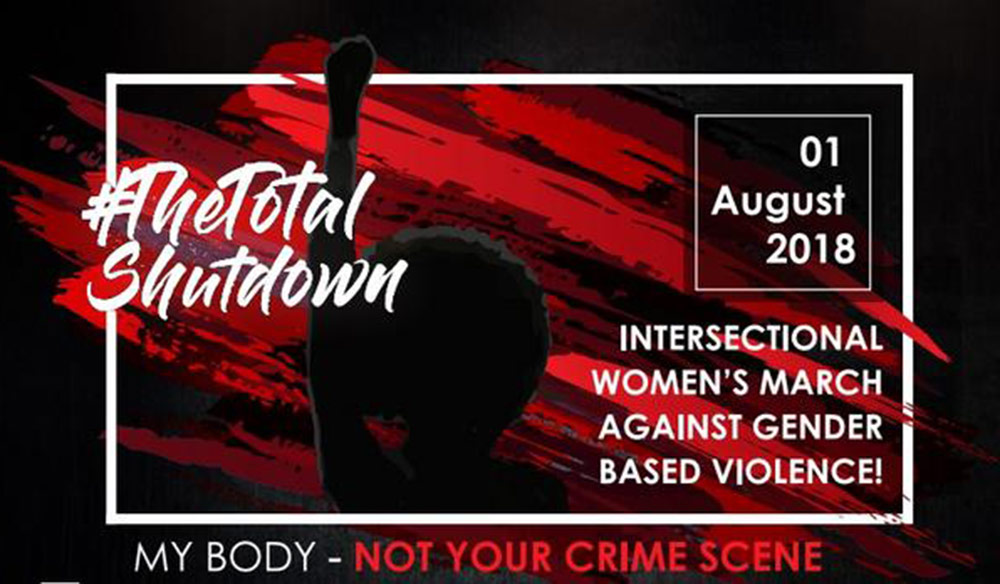On Wednesday 1 August 2018, South Africa’s women will join the #TheTotalShutdown campaign by taking to the streets and shouting, “Enough violence, enough campaigning, enough lip-service!”
Women and gender non-conforming people from Sonke Gender Justice, will be there, will you?
Women and girls are most affected by the scourge of gender-based violence. It is therefore appropriate for us to exercise our agency and take the lead in demanding justice and defining how GBV in South Africa is addressed.
And while men are not being called upon to actively participate in marches on the day, they are being asked to support the #TheTotalShutdown by refraining from spending, filling in for women and gender non-conforming people at work and relieving mothers, wives and partners of their home duties.
August is a time set aside to honour the sacrifice South African women have willingly made in the name of freedom and liberation. It’s a month where the country commemorates and pays tribute to more than 20 000 women who on the 9 August 1956 marched to the Union Buildings in protest against the apartheid system’s pass laws, designed to segregate and limit movement of people of colour in South Africa.
In the past, the month has been an opportunity to celebrate the milestones made by this group of brave and determined women and their descendants. Not this year. Not when femicide and violence against women remains the challenge that it is. On April 28 2017, Karabo Mokoena was brutally murdered and then set alight by her then partner. The shocking act may have led to the viral #MenAreTrash campaign, but it did not lead to substantive intervention from our leadership.
In a country where, according to a study conducted by the South African Medical Research Council in 2012, a woman is killed by her intimate partner every eight hours – women are left with no choice but to use their bodies to protect themselves.
Between the 2016 and 2017 reporting period, 49 445 cases of sexual offences were reported to police including 39 633 incidents of rape. Some of our sisters are slaughtered while holding protection orders against their abusers. There is nothing to celebrate when women and girls continue to live in fear for their lives when their sense of security is compromised even in private spaces where they should feel safe.
Every year, campaigns roll out to raise awareness of the levels of gender-based violence in this country. Viral social media campaigns such as #MenAreTrash and #MeToo in which women shared their personal experiences of sexual abuse, harassment and rape helped to spark important conversations and yet, the scourge of gender-based violence continues.
What will it take to get the attention of the decision makers who have the responsibility to address the issue? We need them to put in place policies such as a fully costed National Strategic Plan on Gender-Based Violence, we need the justice system to be strengthened and we need more sexual offences courts that are able to deal with sexual violence cases expediently.
Gender-based violence knows no race, economic status or class as it affects women and girls across the divide and so on 1 August we will all say “Enough!” We will not work; we will not contribute to the country’s bottom line. Instead, we will take our bodies onto the streets and join marches in Johannesburg, Cape Town and Bloemfontein. We will do what is necessary to get the attention of politicians, business and decision makers.
Major activities have been planned across the country. These include peaceful marches to the Union Buildings in Pretoria, to Parliament in Cape Town, to the Supreme Court of Appeals in Bloemfontein as well and marches in other parts of the country.
At these marches, a memorandum will be handed to the government with detailed demands for what needs to be implemented at government level, in the judicial system and within the police including a demand for a National Women’s Indaba to address GBV.
Will you be joining us?








